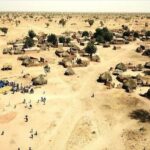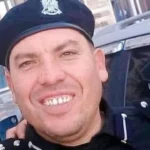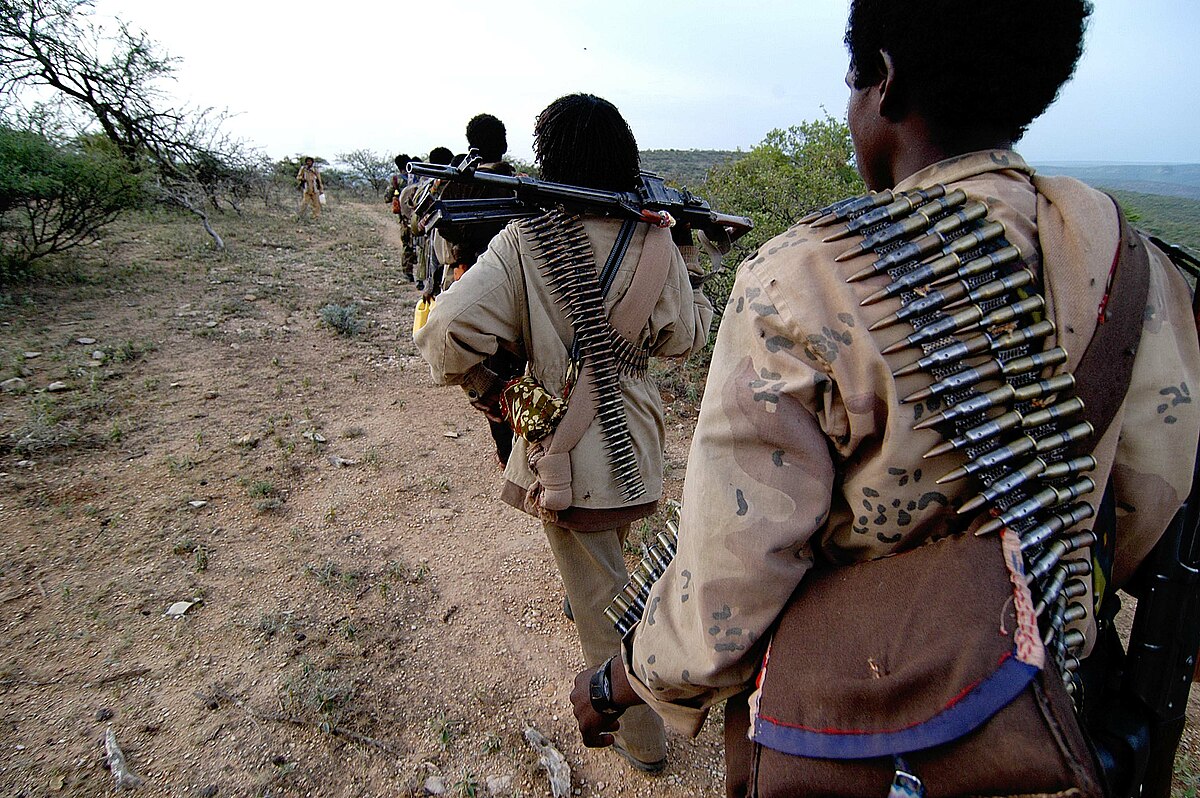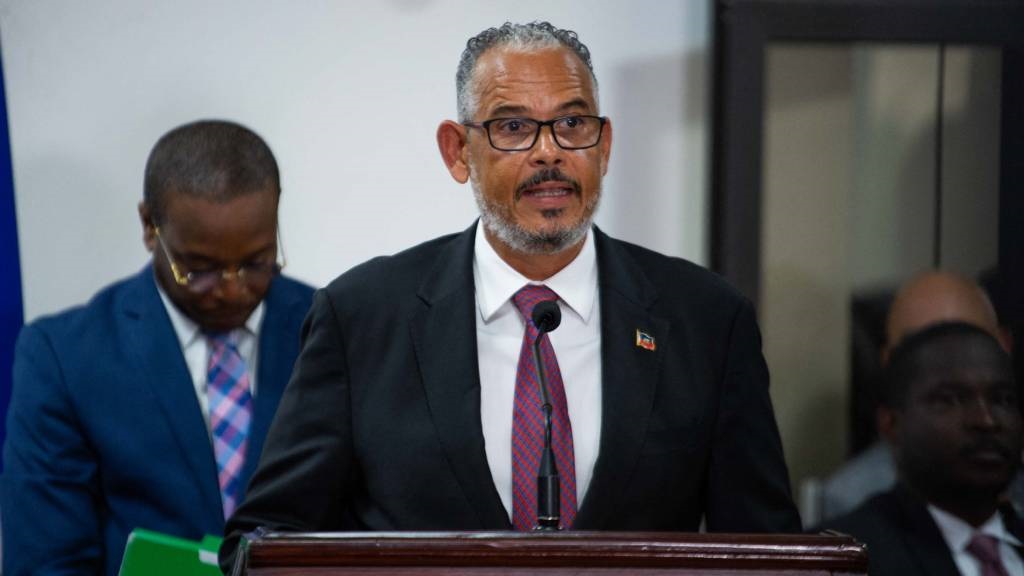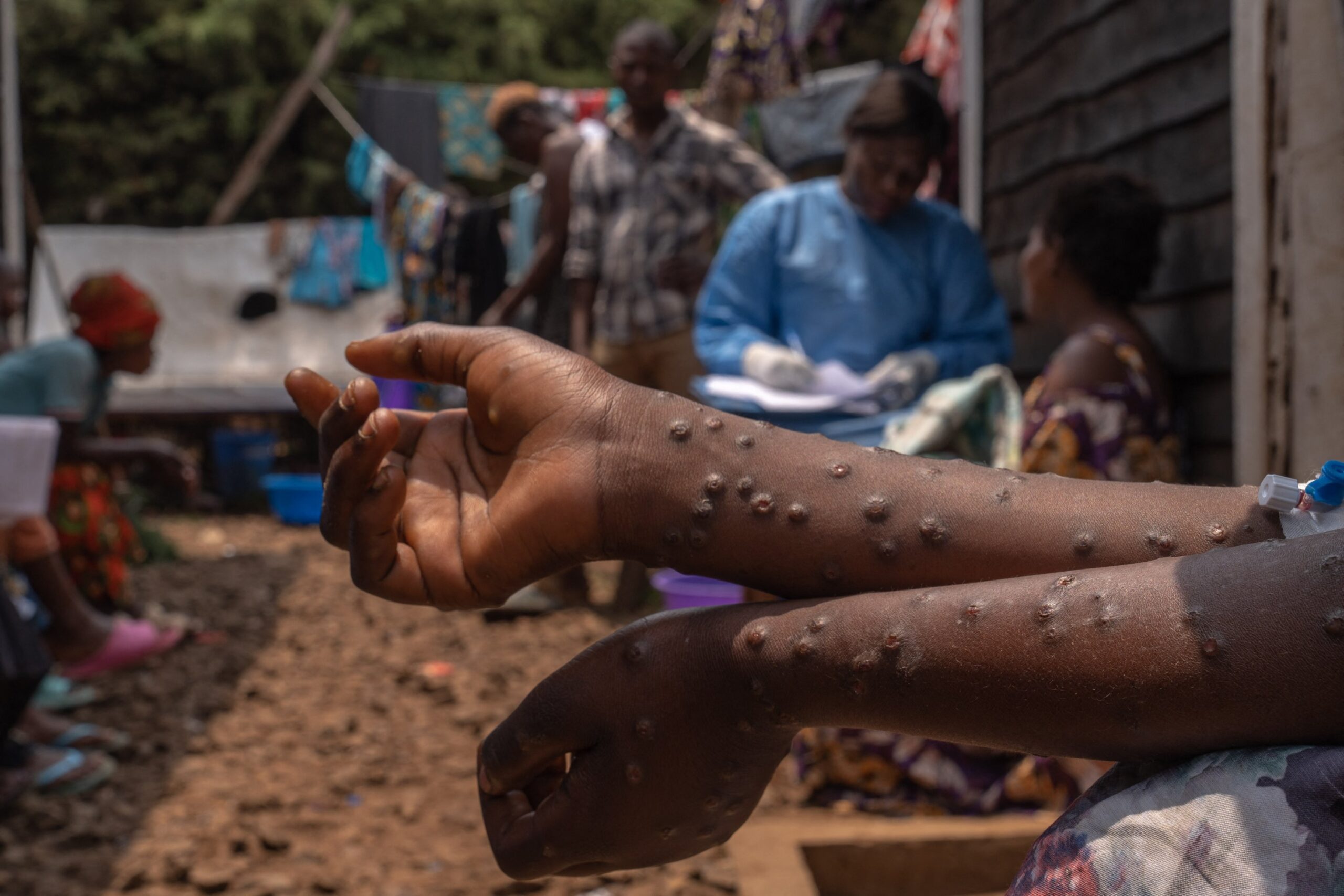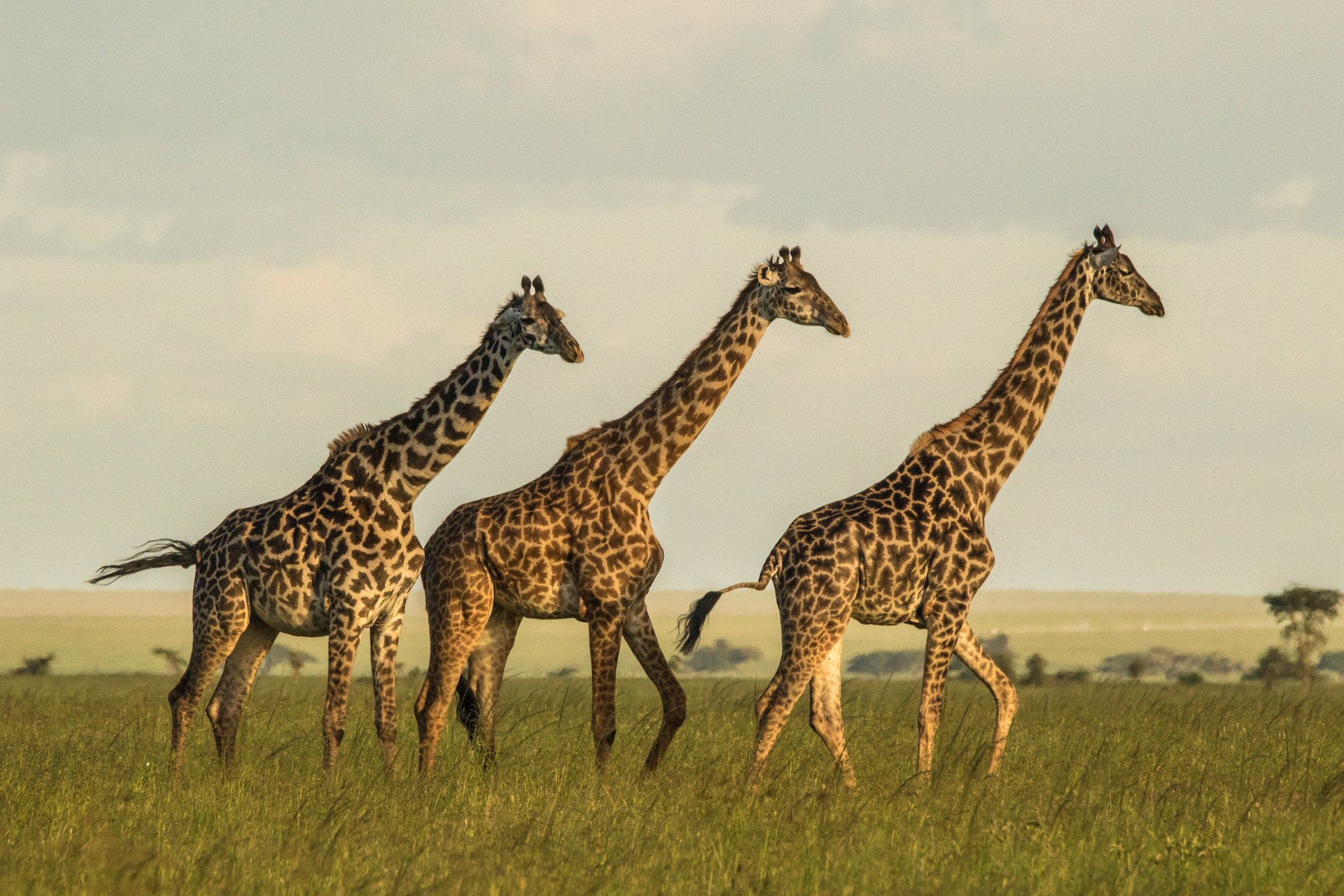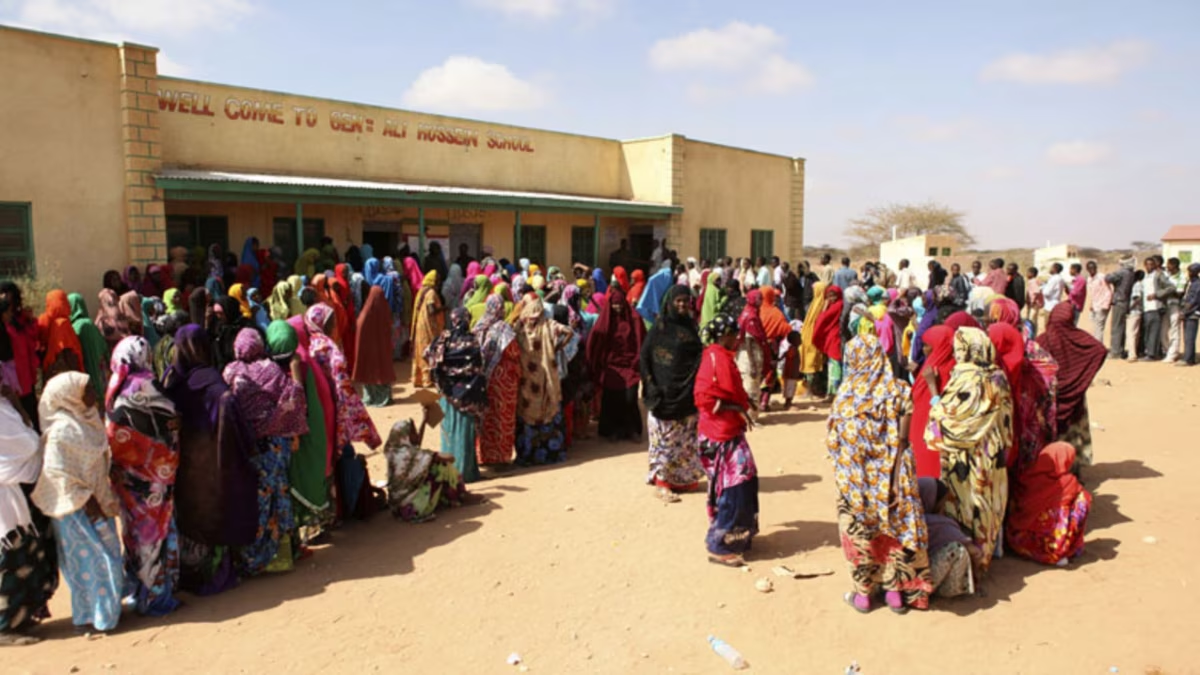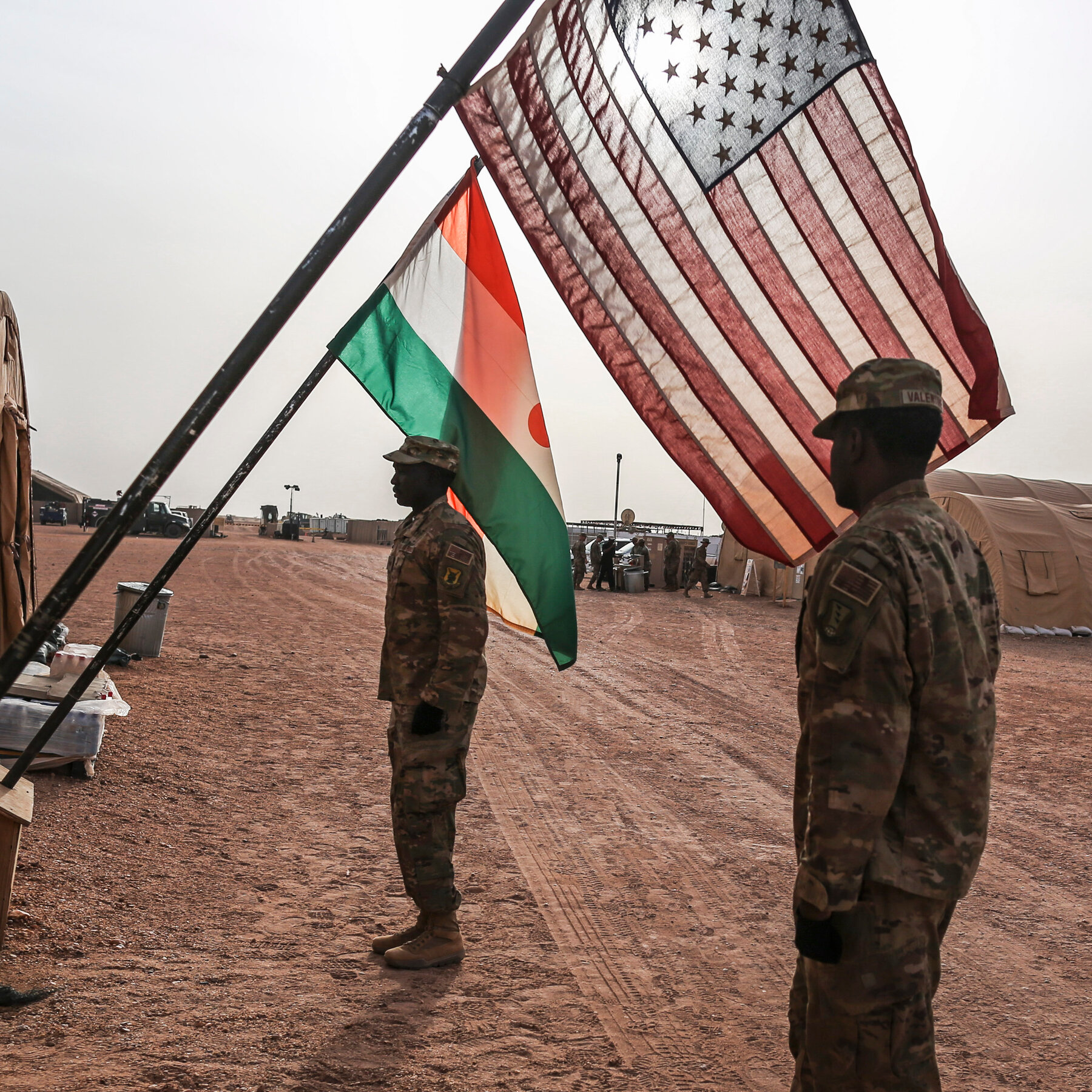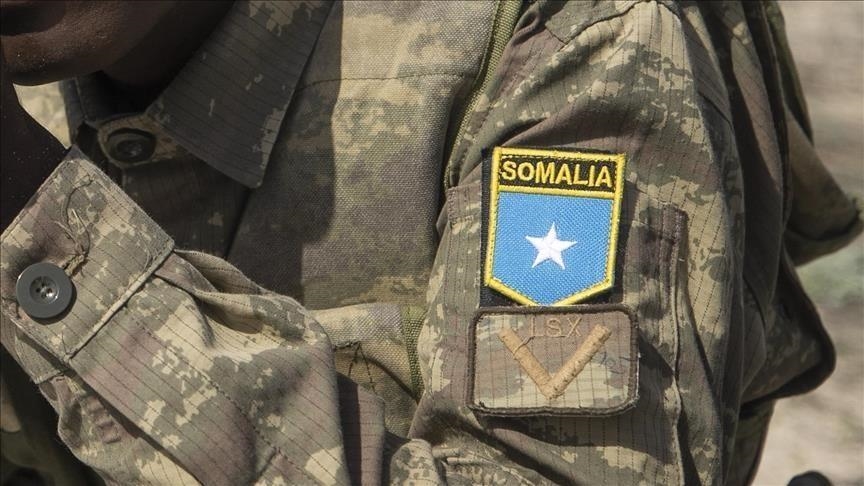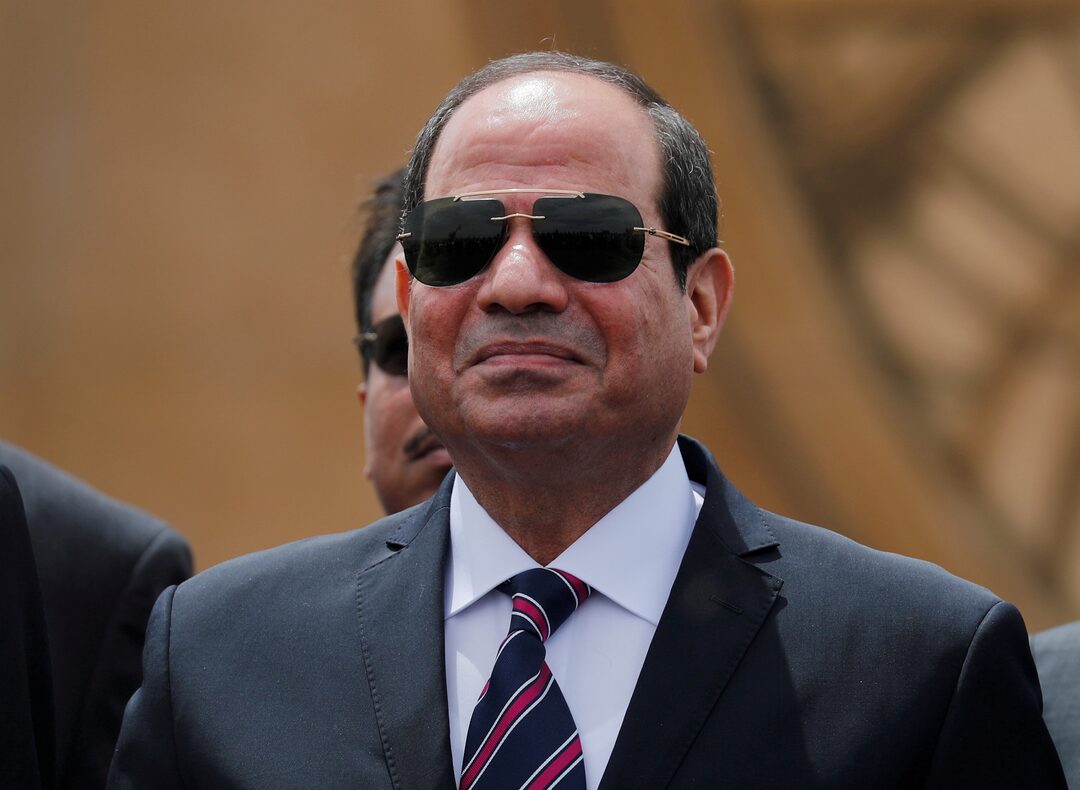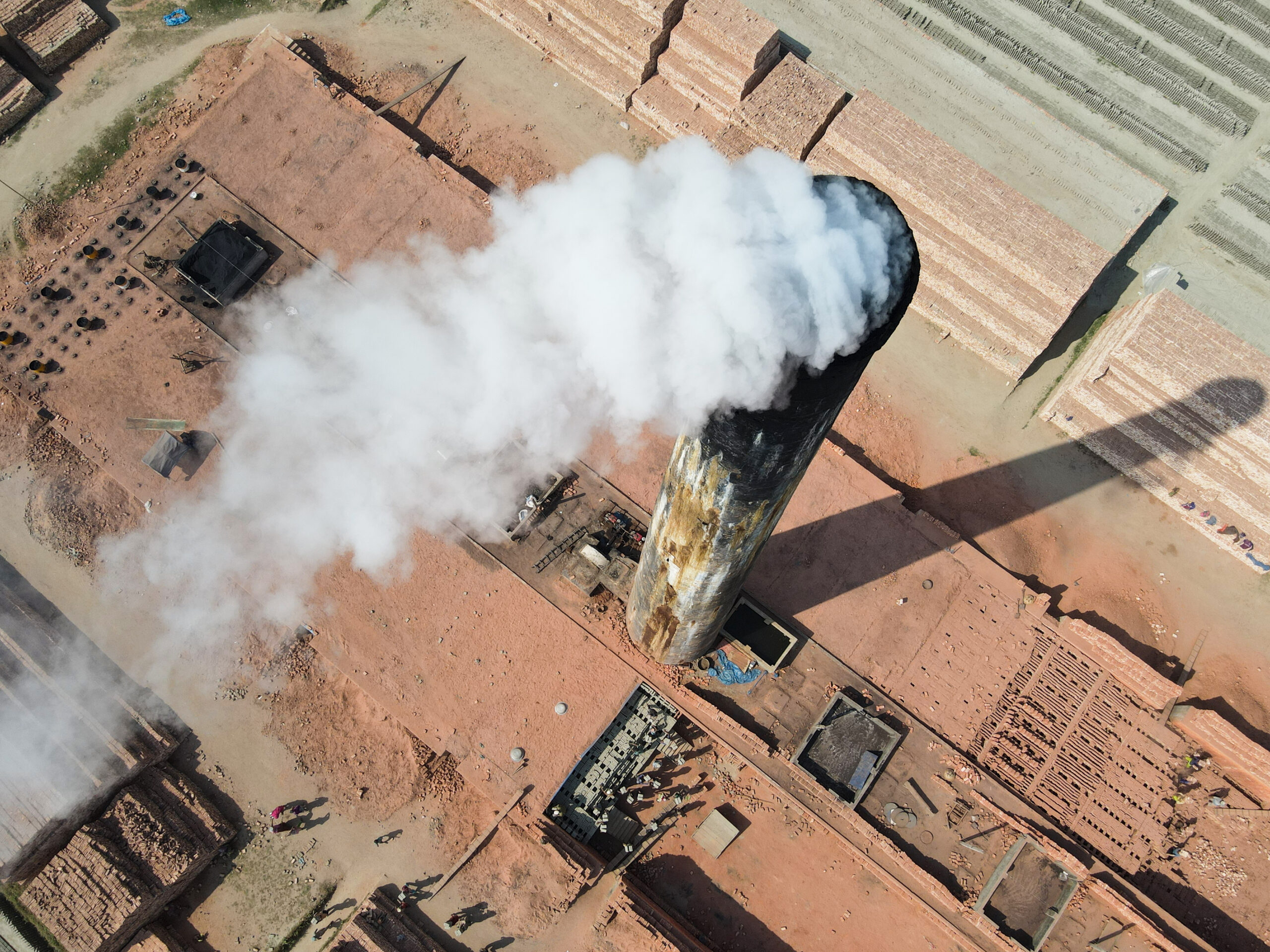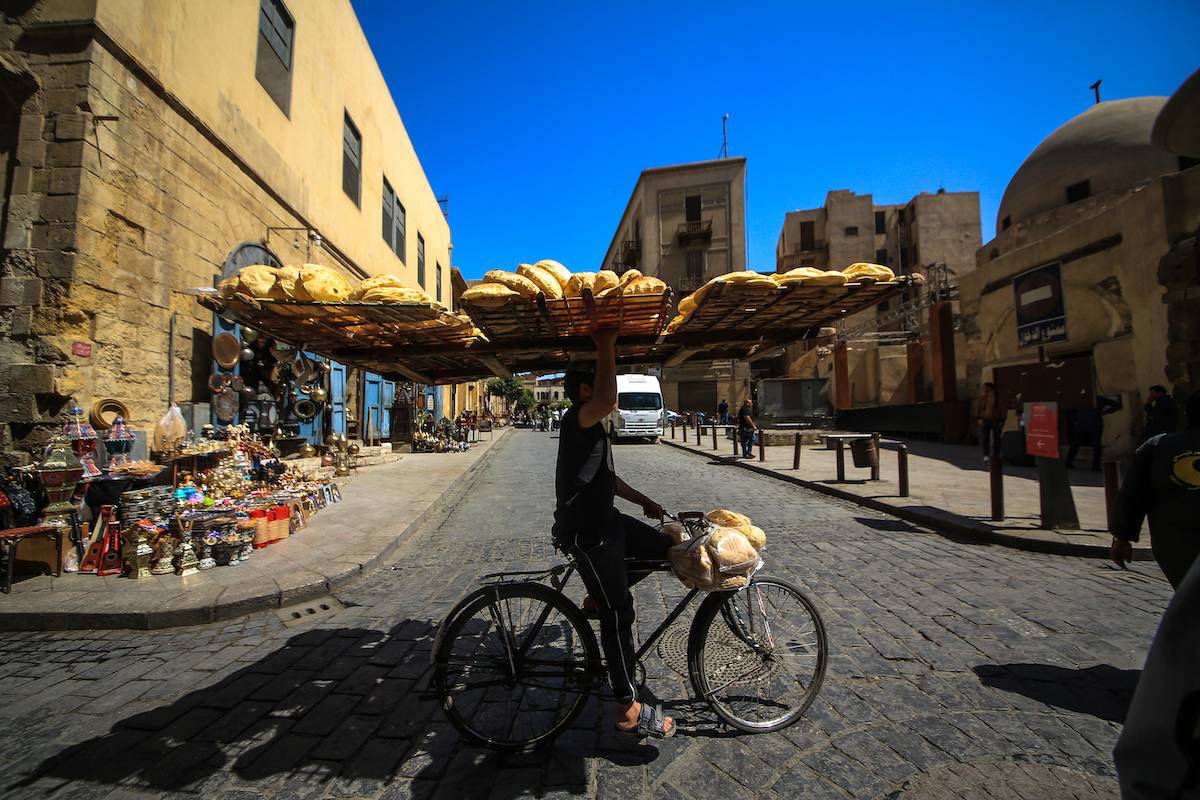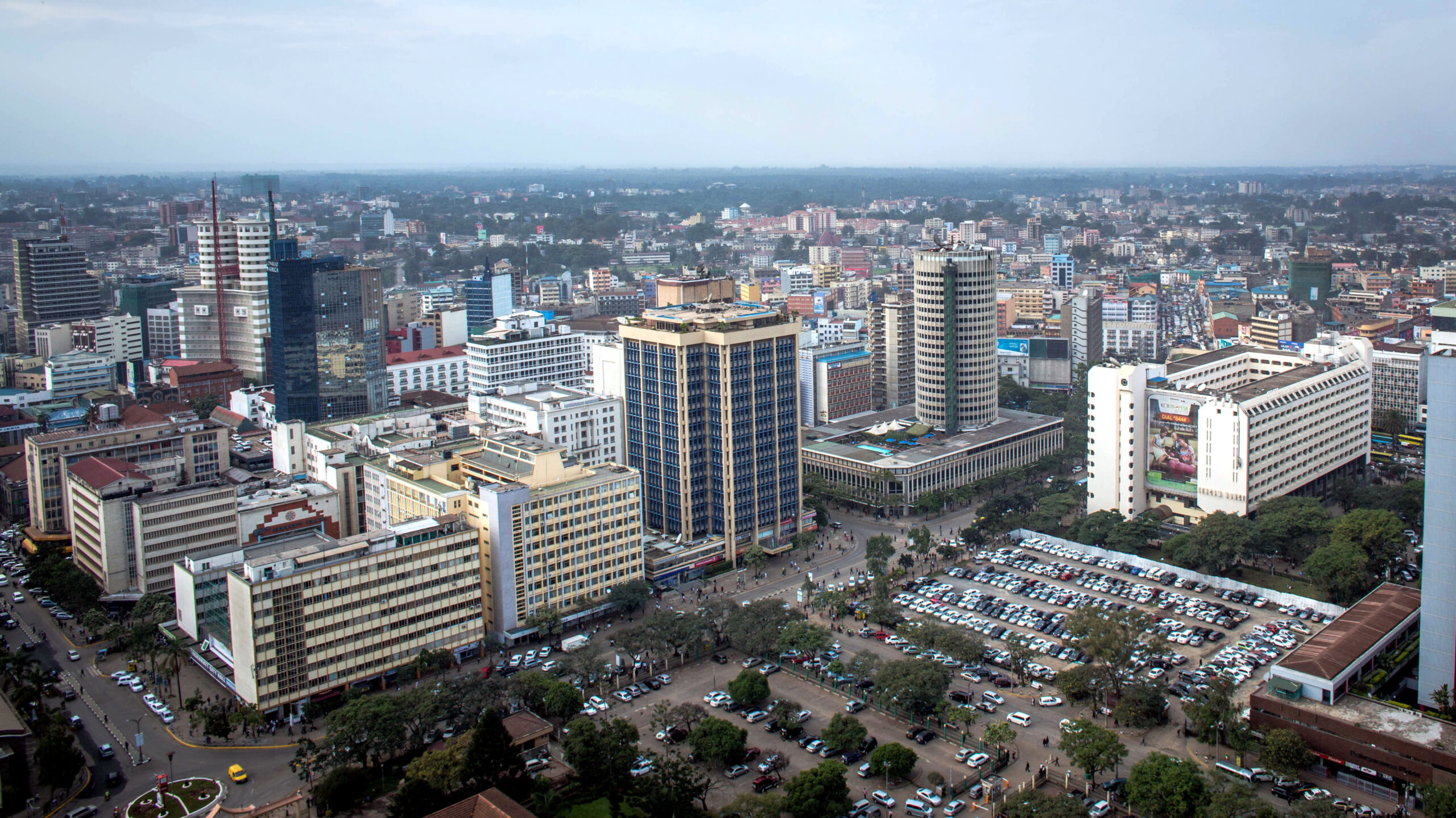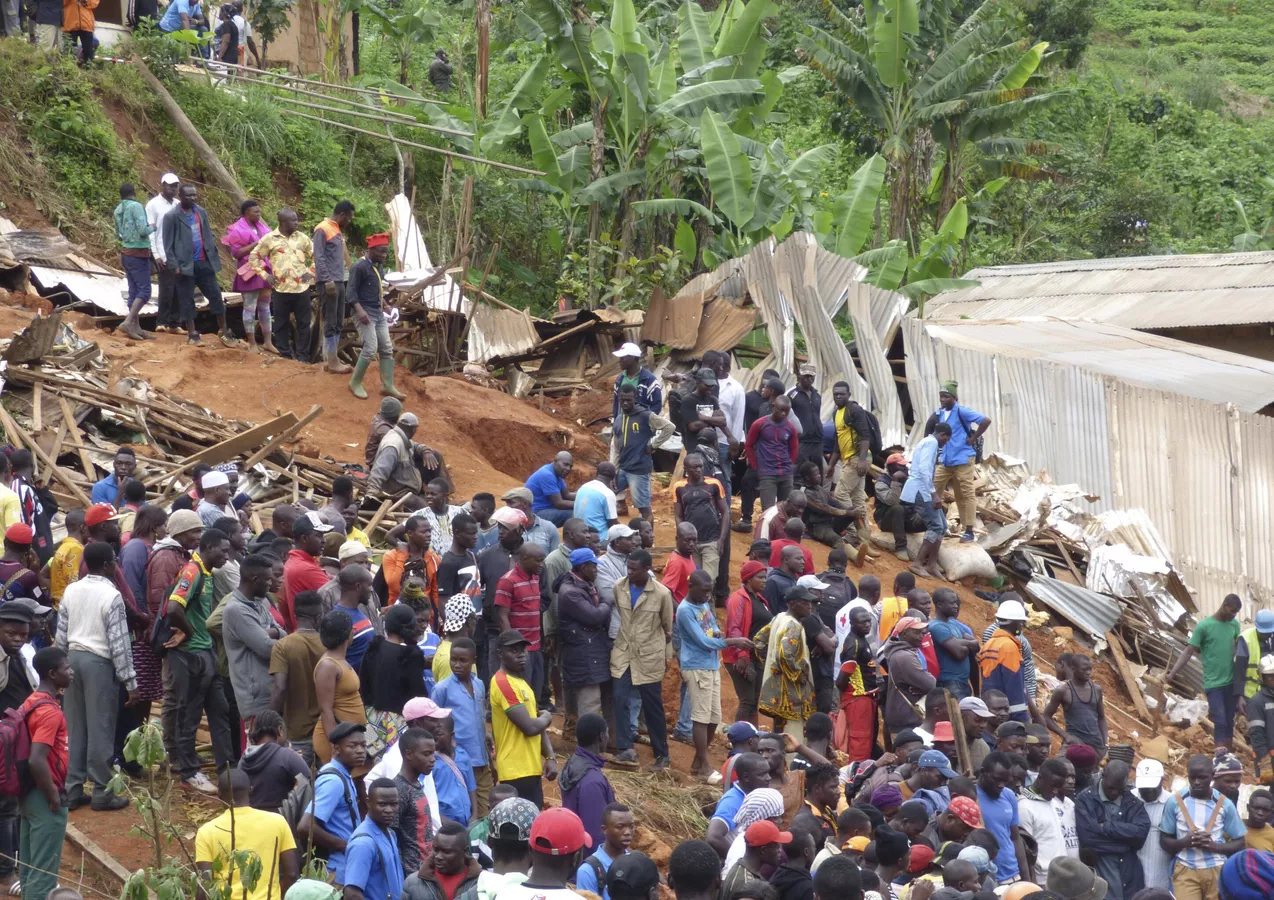Russia, African states to set up security dialogue mechanism
Russia and African states have confirmed their readiness to set up a dialogue mechanism in a bid to coordinate efforts on multiple security-related issues following a forum held in the Russian resort city of Sochi on Nov. 10, according to a joint statement. “We reaffirm our readiness to set up a standing top-level Russia-Africa dialogue mechanism that will contribute towards peace, stability and security as well as coordinating efforts in combating terrorism and extremism, addressing environmental problems and food and information security issues,” the statement said following the first ministerial meeting of the Russia-Africa Partnership Forum. Expressing concern among the meeting’s participants over the growing activity of terrorist groups in different African regions, the joint statement said they confirmed the importance of conflict resolution based on the principle of “African Solutions to African Problems.” It further emphasized the need for collective efforts and comprehensive approaches to assess and bolster international peace and security architecture, emphasizing the need to address the root causes of intrastate and interstate conflicts “based on the inviolability of the principle of equal and indivisible security.” The statement also expressed all parties’ commitment to the Treaty on the Non-Proliferation of Nuclear Weapons, believing that ensuring the treaty’s implementation as soon as possible is a priority for maintaining the international security system. The statement went on to convey the parties’ concern about the ongoing conflicts in the Middle East, particularly the developments in Gaza and Lebanon, adding that they support Palestine’s membership to the UN.
500 rebels surrender weapons in Central African Republic
In the Central African Republic, 478 members of the rebel group Coalition of Patriots for Change (CPC) surrendered their weapons. According to military sources cited in national media, the 478 rebels voluntarily joined the National Disarmament, Demobilization, Reintegration, and Repatriation (DDRR) program. As they surrendered, the rebels handed over 1,788 pieces of military ammunition, 30 AK-47 assault rifles, and 8 rocket launchers to DDRR authorities. In the past two weeks, around 150 rebels had already surrendered their weapons in the country. Armed groups such as Seleka, Anti-Balaka, 3R (Return, Reclamation, Reinforcement), the Union for Peace in the Central African Republic (UPC), the Patriotic Movement of Central Africa (MPC), and the Lord’s Resistance Army (LRA) are fighting for control of resource-rich areas, particularly in the country’s mining regions. The CPC rebel groups had launched an offensive in December 2020 to capture the capital, Bangui, but were unsuccessful. Since 2013, ongoing violence in the country has resulted in the deaths of thousands, mostly Muslims, and displaced over one million people.
13 Killed in mine collapse in Nigeria
At least 13 people were killed when a mining site collapsed in the Plateau State, northcentral Nigeria. Joshua Riti, a government official in the state, told Anadolu on Tuesday that the victims were aged between 18 and 30 and belonged to the Bassa Local Government Area. The collapse occurred on Saturday at the borders of Bassa, Jos South, and Jos North Local Government Areas, where these young individuals sought to earn a living in the mining pit, he added. Recently, 22 miners died when a mining pit collapsed at an illegal site located within a national game reserve that spans the Gashaka Local Government Area in Taraba State and the Toungo Local Government Area in Adamawa State.
Haiti’s new prime minister sworn in amid surge in violence
Haiti’s newly appointed interim Prime Minister, Alix Didier Fils-Aimé, was sworn in on Monday as violence surged in the capital, Port-au-Prince. Shortly after his inauguration, gunfire erupted at Toussaint Louverture International Airport, where armed gangs targeted a Spirit Airlines flight arriving from Fort Lauderdale, Florida. Shots fired at the plane struck a flight attendant, who suffered minor injuries, according to reports from Spirit Airlines and the U.S. Embassy. The flight, originally scheduled to land in Port-au-Prince, was diverted to the Dominican Republic and landed safely. In response to the escalating violence, some airlines have temporarily suspended flights to Haiti due to security concerns. During his inauguration, Fils-Aimé emphasized the urgent need for security, stating, “The first essential task that will determine the success of the transition is to re-establish the security of people, property and infrastructure, food security, and freedom of movement throughout the country.” Fils-Aimé, a prominent businessman and former president of Haiti’s Chamber of Commerce and Industry, assumes office at a particularly turbulent time for the country. The transitional council overseeing the restoration of democratic rule has recently faced allegations of corruption against three of its members, further hindering efforts to stabilize the government. Fils-Aimé’s appointment follows his 2015 Senate campaign and studies at Boston University. He was previously considered a private sector candidate for interim prime minister before the role was held by Garry Conille.
Deadly road crash kills 21 in Ivory Coast
The accident occurred on a road linking Soubré and Gagnoa. Authorities have launched an investigation.
Mahama leads Ghana’s race, Bawumia trails: poll
An opinion poll shows John Dramani Mahama ahead of Muhamudu Bawumia in Ghana’s upcoming presidential election, with a 52% lead.
Mpox cases plateau in DR Congo’s outbreak origin
The World Health Organization reports that mpox cases in the Congo region, where a new, more infectious variant emerged, are stabilizing.
Mauritius opposition set for victory after PM concedes
Mauritius opposition celebrates potential victory after Prime Minister Jugnauth concedes defeat in legislative elections.
Giraffes: Africa’s iconic giants and their endangered habitat
Africa remains the only continent where giraffes live in the wild, symbolizing beauty and biodiversity
Somaliland readies for key election as diplomatic crisis unfolds
Somaliland’s high-stakes presidential election holds implications for the Horn of Africa as Ethiopia and Somalia tensions rise.
US setbacks in Africa create security strategy gaps — analysis
US foreign policy in Africa faces hurdles as embassies lack resources leaving gaps in intelligence while China’s popularity grows across the continent.
Botswana VP Gaolathe named finance minister
One of Gaolathe’s immediate challenges will be to address sluggish economic growth, with the International Monetary Fund forecasting a decline to 1% this year
15 Chadian soldiers killed in clashes with Boko Haram
At least 15 Chadian soldiers were killed and 32 injured in weekend clashes between government forces and the Boko Haram terrorist group in the country’s Lake Chad region, the military said Sunday. In a statement, the military said 96 terrorists were neutralized and 11 injured in clashes on Saturday. The military recovered more than 100 weapons while six boats were destroyed, it added. Boko Haram is in disarray and defense and security forces involved in the operation continue to hunt down the group’s remnants, the military said. The injured soldiers were rushed for treatment to the capital N’Djamena. The incident came weeks after President Mahamat Idriss Deby Itno launched an operation against the terrorist group following an attack last month on a military base in Lac province that killed 40 soldiers. Earlier on Sunday, Deby expressed his “sincere condolences to the families of the martyrs who died defending the homeland during the clashes” and wished the wounded a speedy recovery. “Following clashes between Chad’s security forces and a group of terrorists from the Boko Haram sect, I would like to salute the bravery of our valiant soldiers who fought a heroic battle that annihilated the group that ventured into our territory,” the president said in a message. Last month’s attack targeted a defense and security forces base in the Barkaram area in Lac near Ngouboua, a town located around 480 kilometers (298 miles) northwest of N’Djamena. Following the attack, Deby led an operation dubbed Haskanite to track down the assailants. He withdrew from the frontline on Saturday, according to the President’s Office. Deby reaffirmed that Operation Haskanite via “air, sea and land continues to track down the last elements of this evil sect.” Chad has been battling an insurgency in the Lake Chad region, where government forces regularly clash with terrorist groups, including Boko Haram.
Somali cabinet fires army chief, reappoints predecessor
Somalia’s cabinet ministers on Saturday dismissed armed forces chief Ibrahim Sheikh Muhyadin Addow, appointing Maj. Gen. Odowaa Yusuf Rageh in his place. The cabinet made the change during an emergency meeting in Mogadishu amid rising political tensions in the Horn of Africa nation. Rageh, who previously served as army chief from 2020 to 2023, led operations against al-Qaeda-affiliated al-Shabaab under President Hassan Sheikh Mohamud’s “all-out war” on the group. According to the Prime Minister’s office, Rageh’s reappointment aims to “speed up the defense of the country and eliminate the Khawarij groups,” a term the Somali government uses to refer to al-Shabaab terrorists who had been fighting the government and AU peacekeepers since 2007. The reshuffle comes as tensions between Somalia’s federal government and several regional states escalate over an election timetable dispute. This week, Jubaland announced it had severed ties with the federal government, becoming the second state to do so, following Puntland’s decision in August. Despite opposition from two regional states and former presidents, the Somali presidency recently announced an agreement to hold direct elections in 2025, the first in 56 years, with votes for parliament members and state presidents planned for September of that year.
Three Australian mining executives arrested in Mali
Three executives from an Australian gold miner have been taken in police custody in Bamako, Mali to be questioned in a case of alleged forgery and damage to public property, people familiar with the matter confirmed. Terry Holohan, managing director of Resolute Mining Ltd., was detained by the Malian junta, a source at the Justice Ministry told Anadolu. Holohan and two other company executives were arrested on Friday, said the same source, requesting anonymity. Two officials from the Mines Ministry did not wish to communicate on the situation when contacted by telephone. The executives of Resolute, which owns 80% of the shares in the Syama gold mine in the country’s southwest, are being questioned as part of an investigation into alleged forgery and damage to public property. Accusations were firmly refuted by a company official, who also requested anonymity. Foreign companies that dominate the mining sector have recently borne the brunt of increased efforts to control the sector by the military regime. Four employees of the Canadian company Barrick Gold were detained for several days in September. Barrick Gold had reached an agreement with the state and had paid 50 billion CFA francs ($81 million) in October. But the transitional government said the gold producer had not kept its commitments. The increased pressure exerted on foreign companies coincides with the strategic pivot made by the junta towards Russia, ending defense agreements with former colonial ruler France. Since seizing power in 2020, Mali’s military leaders have vowed to ensure a more equitable distribution of mining revenues. In May, Australian group Firefinch said it would transfer all its shares in the Morila gold mine, as well as its mining rights in the West African country to Sorem, a state-funded company founded in 2022, for a symbolic one dollar. Despite being one of the leading gold producers in Africa, the Sahel nation is also one of the poorest countries in the world.
Egypt, Malaysia agree to work towards cease-fire in Gaza, Lebanon
Egyptian President Abdel Fattah el-Sisi announced Sunday that he and Malaysian Prime Minister Anwar Ibrahim share a commitment to working toward achieving a cease-fire in Gaza and Lebanon. During a press conference at the presidential palace in Cairo marking 65 years of diplomatic relations between the two countries, Sisi highlighted that he and Anwar agreed to increase cooperation in the coming period. The discussions covered regional and international issues, with both leaders emphasizing the need to pursue efforts to halt the violence in Gaza and Lebanon and to enable the entry of humanitarian aid into Gaza. Sisi noted that over the past year, Egypt has been dedicated to reducing the severe impact of death and hunger in Gaza and aims to prevent the region from facing even wider instability. He also emphasized that the two-state solution remains the only viable path to resolving the crises in the region, calling for a Palestinian state to be established alongside Israel. Anwar indicated his intention to strengthen bilateral ties with Egypt, particularly in trade, investment, education, culture and scientific research. He expressed his concerns over Israel’s blockade on humanitarian aid to Gaza, describing it as part of a broader campaign of violence. Pointing to Israel’s disregard for the United Nations and UN Security Council resolutions, Anwar said Israel should face consequences, including possible expulsion from the UN. Invited by Sisi, his visit to Egypt runs from Nov. 9-12. In a joint statement, the countries announced their intention to strengthen relations by increasing high-level visits. They agreed on the importance of promoting peace and security in the region, condemning the humanitarian crisis in Gaza and calling for an immediate cease-fire to address the suffering there. Additionally, they underscored the need to maintain Lebanon’s sovereignty and territorial integrity.
Affi N’Guessan named FPI candidate for 2025 election
Former Ivorian Prime Minister Pascal Affi N’Guessan was named the candidate for the Popular Ivorian Front (FPI) in the upcoming 2025 presidential election on Saturday. At a congress held in Yamoussoukro, the political capital of Ivory Coast, N’Guessan was re-elected president of the FPI with an overwhelming 99.34% of the vote from approximately 4,500 delegates. The FPI is the party of former President Laurent Gbagbo, and N’Guessan assumed its leadership during Gbagbo’s trial at The Hague for war crimes and crimes against humanity. N’Guessan previously ran for president in both 2015 and 2020, losing to incumbent Alassane Ouattara in both elections. In 2020, he rejected the election results and was briefly arrested on charges of attempting to establish a “parallel government.” Among his key policy proposals are the abolition of the Senate and the restoration of presidential term limits. Ouattara, who won a controversial third term in 2020, has not yet announced whether he plans to seek re-election for a fourth term.
Global leaders convene in Baku for COP29, seek climate solutions
The 29th Conference of the Parties (COP29) to the UN Framework Convention on Climate Change (UNFCCC) commenced in Baku on Monday, bringing together world leaders, policymakers, and activists with a renewed commitment to address intensifying climate crises. Running until Nov. 22, the event will focus on urgent discussions around global warming, climate adaptation, and sustainability. With extreme weather events on the rise and average global temperatures reaching unprecedented levels, COP29 presents a crucial platform for advancing solutions. “COP29 will bring together leaders from governments, business, and civil society to advance concrete solutions to the defining issue of our time,” the UN noted, emphasizing the need for collaboration to combat the escalating impacts of climate change. A primary focus at this year’s conference is climate finance. The UN highlights the need for trillions of dollars to assist nations in significantly reducing greenhouse gas emissions while building resilience against climate-driven threats. “A key focus of COP29 will be on finance, as trillions of dollars are required for countries to drastically reduce greenhouse gas emissions and protect lives and livelihoods from the worsening impacts of climate change,” the organization stated. Established in 1992, the UNFCCC treaty arose from the initial findings of the Intergovernmental Panel on Climate Change (IPCC), with the goal of stabilizing greenhouse gas concentrations to prevent severe human-driven disruptions to the climate. Since its inception, the UNFCCC has underpinned global climate agreements such as the Kyoto Protocol in 1997 and the Paris Agreement in 2015. The convention’s 198 member countries meet annually to assess progress and negotiate collective responses to the climate crisis. This year’s conference in Baku promises a renewed emphasis on actionable commitments and innovative funding mechanisms to drive global progress.
Egypt’s headline inflation rises to 26.5% in October
Monthly inflation growth remained steady at 1.1% in October, the same rate as the previous month
Somalia bars Ethiopia from new AU mission
Addis Ababa excluded from mission due to its ‘violations against Somalia’s sovereignty and territorial integrity,’ says defense minister
Africa’s expansive time zones showcase the continent’s vast diversity
Africa is a continent of extraordinary geographical scale, with a diversity that extends even to its time zones
Economic promises dominate Mauritius election for relief
Mauritius is holding a parliamentary election, with Prime Minister Jugnauth and opposition leaders pledging economic measures to address rising costs of living.
Russia-Africa ministerial conference opens in Sochi
The first-ever ministerial conference of the Russia-Africa Partnership forum, chaired by Foreign Minister Sergey Lavrov, opened in the city of Sochi on Saturday. The two-day event is taking place at Sirius University, with the participation of foreign ministers from Russia and African states, as well as the leadership of the African Union Commission and major continental integration associations, the Russian Foreign Ministry said in a statement. The business program on the sidelines of the conference features roundtable discussions and panel sessions on key items on the Russian-African agenda, including security, trade and investment, industrialization, technology transfers, agriculture, the development of the mining sector, education, healthcare and epidemiological safety. The ministry said Lavrov held six bilateral meetings with his counterparts from the Central African Republic, Cameroon, Libya, Mali, Rwanda, Sudan, Uganda earlier in the day. Speaking at a meeting with Libyan Foreign Minister Taher al-Baour, Lavrov said the situation in the Middle East is changing fast. “We want to contribute as much as possible to its pacification in the Palestinian territories, in Lebanon, and in Libya,” he added. Russian Deputy Foreign Minister Mikhail Bogdanov, for his part, held talks with his counterparts from Ghana, Sierra Leone and Somalia.
Chad blames Sudanese army for destabilization, citing Deby killing
Chad has accused Sudan of arming and financing a rebel group operating in the region, and of being involved in the assassination of former President Idriss Deby.
Landslide death toll rises to 12 in Cameroon
Cameroon’s transportation network has been thrown into chaos by a series of landslides that have blocked a major road in the west of the country.
UN reports 1.4 million affected by flooding in South Sudan
The United Nations Office for the Coordination of Humanitarian Affairs (OCHA) has reported that approximately 1.4 million people have been affected by the flooding disaster in South Sudan, with 379,000 people displaced. According to a statement from OCHA, the floods in South Sudan this year have impacted around 1.4 million people. The statement also revealed that 379,000 people have been displaced due to the floods. The floods in South Sudan this year have been described as the worst in recent years, with many roads submerged. The statement noted that humanitarian aid deliveries have been delayed due to the difficult conditions and the efforts of response teams to reach affected communities. The statement also mentioned an increase in malaria cases, which has overwhelmed the health system and worsened the situation in flood-affected areas.
Rwanda discharges last patient of Marburg virus disease
More than a month after Rwanda declared an outbreak of Marburg virus disease, health authorities have discharged the last patient, the World Health Organization (WHO) said on Saturday. The last patient was discharged on Friday but their contacts, along with those of previously discharged patients, will continue to be followed up until the end of their 21-day observation period, the WHO said in a statement. If no new infections arise 42 days after the last confirmed case tests negative, the outbreak will be declared over. A total of 66 cases and 15 deaths have been recorded during the outbreak, which was declared on Sept. 27. Health Minister Sabin Nsanzimana said the outbreak is under control and though no new cases are being reported for over a week, surveillance measures continue. “This outbreak demonstrates that with the best available treatment, recovery is possible, and contributions to science can be made,” he said. “The evidence generated from this outbreak is going to help shape surveillance activities going forward and prevent future outbreaks.” Brian Chirombo, WHO representative in the East African country, attributed the containment of the disease to concerted efforts which involved rapid deployment of rapid response teams, close monitoring of contacts, and implementation of infection prevention and control measures. “Rwanda is successfully emerging from a highly challenging outbreak, effectively mitigating its potentially devastating impacts. The WHO remains committed to supporting these ongoing collaborative efforts until the outbreak is officially declared over,” he said. Marburg virus disease is in the same family as the virus that causes Ebola, a highly virulent disease that causes hemorrhagic fever, with a fatality ratio of up to 88%. The virus is transmitted to people from fruit bats and spreads among humans through direct contact with the bodily fluids of infected people, surfaces and materials. Symptoms include high fever, strong headache, vomiting and muscle aches.




